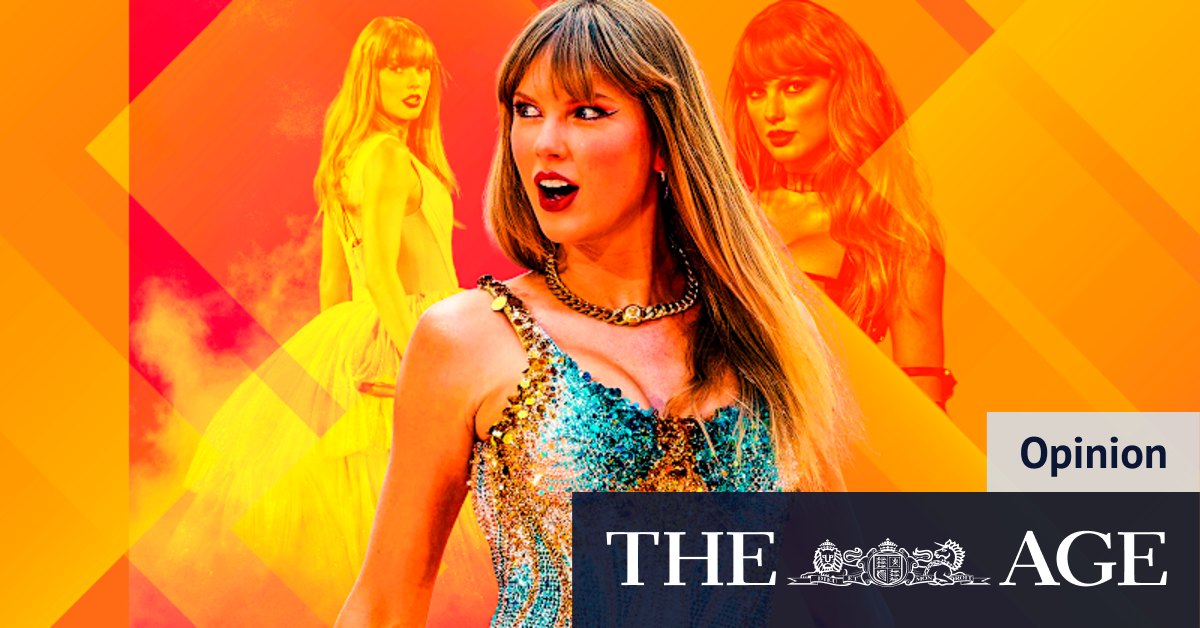It was a mission so personal that, instead of a team of lawyers, Swift sent her mother and younger brother, Austin Swift, to negotiate with private equity firm Shamrock Holdings, which purchased Swift’s masters for reportedly hundreds of millions of dollars from enemy Scooter Braun in 2020. In May, it was revealed they had succeeded, with Swift securing her masters’ ownership for an undisclosed, nine-figure sum.
“Taylor Swift is a shrewd businesswoman who, in the quest to keep the private life she mines to stay centre-stage as behind-the-scenes as possible, sends out mixed signals.”
Bronte Gossling
Her lengthy, sentimental handwritten letter announcing the acquisition was one of many Easter eggs laid over more than a year that hinted towards a 12th album. And that’s why I don’t know if I can believe her when she says it’s not about the money. It is forever and always about the money.
This is the powerhouse who, to much criticism and accusations of chart manipulation last year, released 36 different physical and digital variants of the same record – the 31-track double album The Tortured Poets Department: The Anthology – for her fans to stream and purchase.
With every vinyl bought, yes, fans got access to exclusive live recordings, photos and new songs, but in exchange, Swift got to keep breaking records and block other artists from climbing official charts for months on end. In total, The Tortured Poets Department: The Anthology spent 16 weeks at number one on the Billboard 200, though Swift notably walked away empty-handed from the Grammys earlier this year.
Loading
Swift is a shrewd businesswoman who, in the quest to keep the private life she mines to stay centre-stage as behind-the-scenes as possible, sends out what I would, at best, call mixed signals (I am not even going to go into her complicated approach to politics).
On New Heights, for example, she explicitly told her fans the Zodiac Killer-like clues she cryptically drops in every performance, note, music video and more will only ever be about her music, not her personal life.
As someone who used to spend hours decoding the secret messages she would send by way of capitalised letters in her album lyric booklets, which would reveal the song’s meaning or its subject, this rings hollow.
When Swift then said her upcoming 12-track album, The Life of a Showgirl, is about “everything that was going on behind the curtain” during her mammoth The Eras Tour, it only reaffirmed that her private and public lives are one and the same.
Swift is clearly aware of this, and of how the push-pull of establishing boundaries when fans feel ownership over her, and over the inner world she serves their parasocial connection on a silver platter, can’t be a dance that’s well choreographed.
One only has to listen to But Daddy I Love Him or I Can Do It With a Broken Heart (my top Spotify song last year, alongside You’re on Your Own, Kid. Don’t read into this) to know Swift struggles to keep up with the demands of fans who feel like they can read her mind as much as she can read theirs. But even though she’s poured her heart and soul into every song, as one YouTube viewer noticed, “[New Heights] made me realise I don’t think I’ve ever heard [Swift] talk this much or in a natural setting ever.”
What’s sustained Swift’s longevity in a notoriously brutal industry is, alongside her myriad reinventions, ultimately what makes the showgirl human: She’s a walking contradiction, but she’s so earnest that it only adds to her allure. And that feeds my obsession. And that has Swift, with her net worth guaranteed to skyrocket come October 3, laughing all the way to the bank.

